Next concert:
08.01.2023 | 11 a.m.
Shelter – Charity concert
In aid of »wir helfen«
At the start...
I first saw Thomas Hampson on stage in Cologne in 1994, in the title role of Claudio Monteverdi's Ritorno d'Ulisse in patria. The Cologne opera director Michael Hampe had refreshed his Salzburg production of the piece (in the musically »free reconstruction« by Hans Werner Henze) - and there laid Odysseus/Hampson huddled and unrecognised on a round stage disc with soft light in the background, lamenting the »eternally ill-tempered gods« and finally being told by Athena that his odysseys had come to an end and he had finally arrived: at home in Ithaca, with his wife Penelope. Perhaps Hampson could not have been imagined as the furious berserker Achilles, but as Odysseus he was perfect: an »intellectual«, self-doubting hero with masculine charisma and a remarkably sovereign sense of style, who perhaps only lacked the necessary portion of arrogance and malice in his fight against the brazen suitors.
Of course, among the more than 80 stage roles Hampson has acquired in four decades on the opera stage are the villains and arch villains of the type of Iago in Verdi's Otello or the unscrupulous police chief Scarpia from Puccini's Tosca. But even evil has human, even tragic traits in his reading - which applies all the more to ambivalent characters like Macbeth, Count Almaviva, King Amfortas or Don Giovanni, Hampson's parade role. How much the baritone understands the intermediate tones, he also proves in the Lied from Franz Schubert to Ned Rorem - here his curiosity for unknown, not least American repertoire knows no bounds.
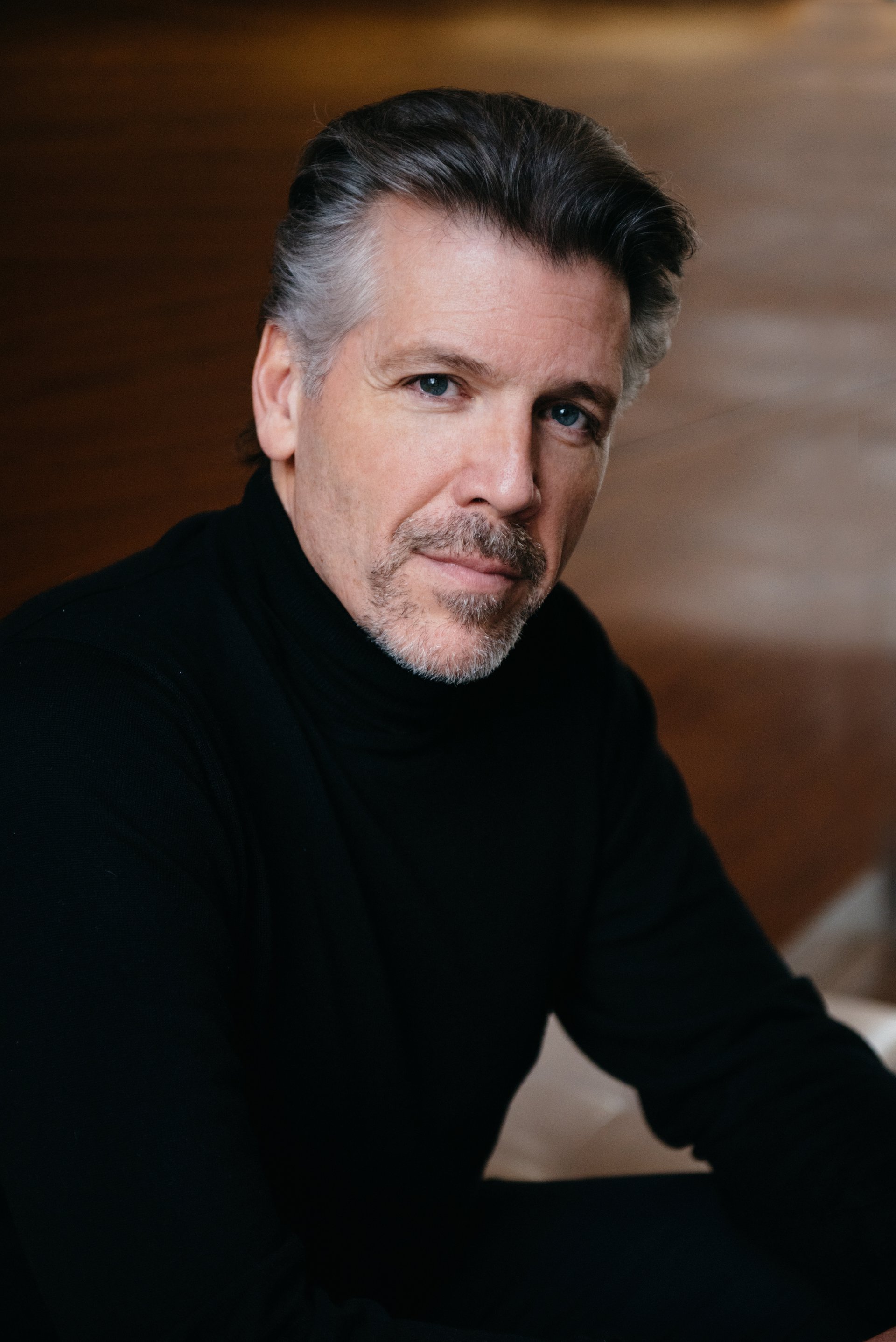
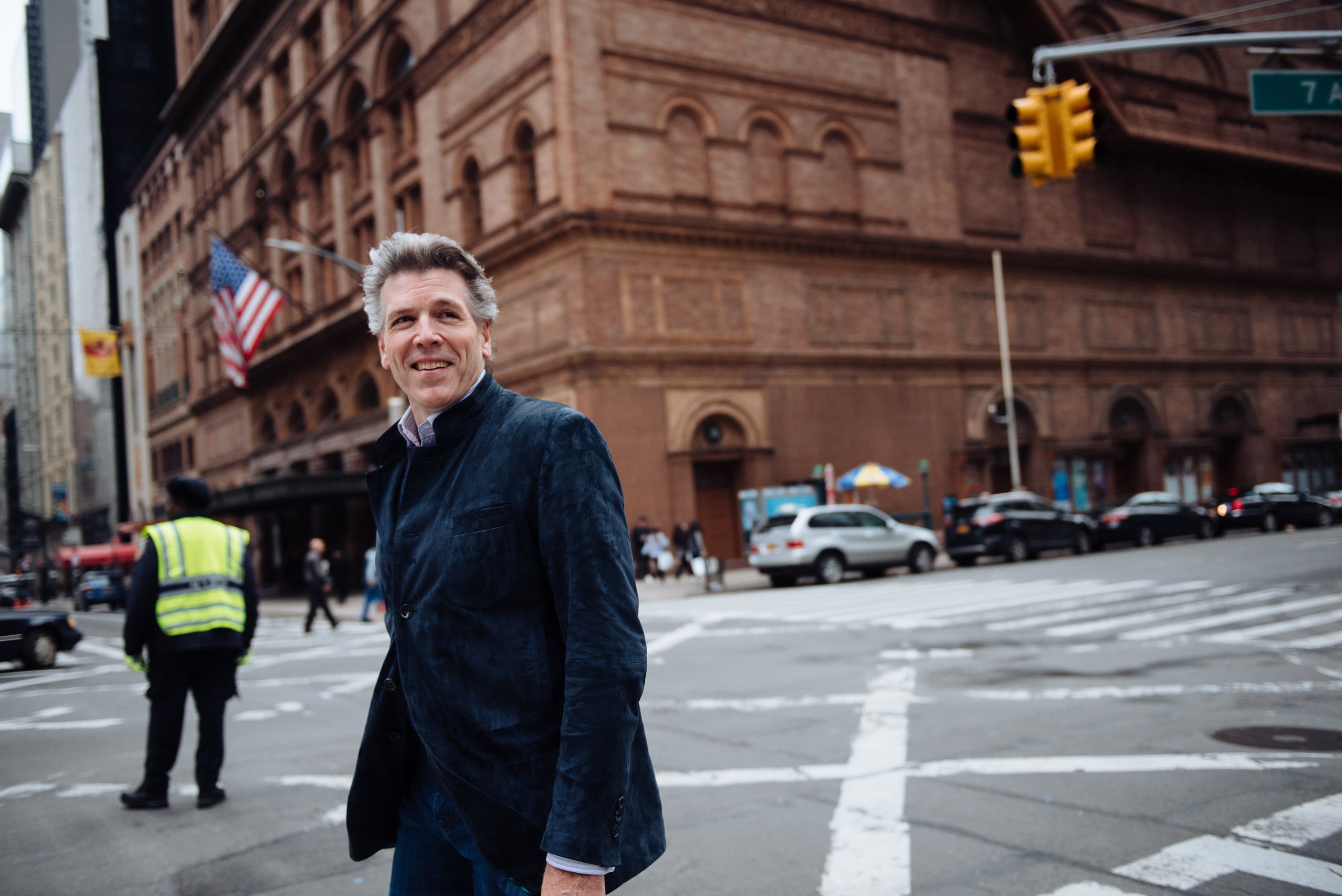
The diverse multitude becomes a community.
Thomas HampsonThe interview
America is the theme of the Gürzenich concert on January 8. Thomas Hampson, you said in your book Liebst du um Schönheit that you are »American, body and soul«. What does that mean?
First of all, it means gratitude for my country, where I had so many opportunities – this «possibility thinking« does provide a certain incentive in America. My personal development, which took me to Europe early on, also has to do with the fact that I grew up with the American idea: what can I do, what are my talents, where should I go, whom do I have to meet? Americans are always on the go, which makes them less dependent on where they are from. That is one aspect.
The other aspect of my American identity goes a bit deeper. In 2001 I curated a programme entitled »I Hear America Singing« for the Salzburg Festival – of course that is a famous quote by Walt Whitman. I devised three concerts featuring European 20th-century composers who set texts by American poets and writers. When you look more closely, however, even before then, there were composers who said: in my imagination, I am American. Even if they never set foot in the country. When Franz Schubert died, James Fennimore Cooper’s Longstocking stories were on his night table. The poet Nikolaus Lenau even emigrated to America, but returned after a few months, disgusted by the dirt and people’s stupidity and materialism, as he wrote.
My point is: there was always, and there will always be an idealized image of America. And music and poetry in the USA was always an exploration and reflection of these ideals – and what it means to be American. Walt Whitman is surely the greatest 19th-century philosopher who tried to articulate true democracy and social context in the USA. In the same sense he meant it, I am truly »American, body and soul«.
So there is a traditional European longing for »America« – on the other hand, American music looked to Europe for orientation for a long time.
I live in Europe and am identified with my love for German and European culture. But I do not wish to create the impression that I am appropriating something I have no right to. I am not European, I am not Austrian. But I am a human being, I am a singer, I am a passionate reader, I study and try to assimilate European culture. Looking at it from the other side, it is interesting that music and literature allow us to get much closer to American cultural history, but also to its real history and the American ideals – through the eyes and ears of American artists of every epoch. If you study those closely, you also perceive the tensions, struggles and conflicts which shook America. That is particularly palpable today, looking at the »Black Lives Matter« movement or the attempts to do justice to indigenous culture in the USA – which is almost impossible, for the destruction was immense. At least the Native Americans occasionally succeed in getting their lands returned through law suits.
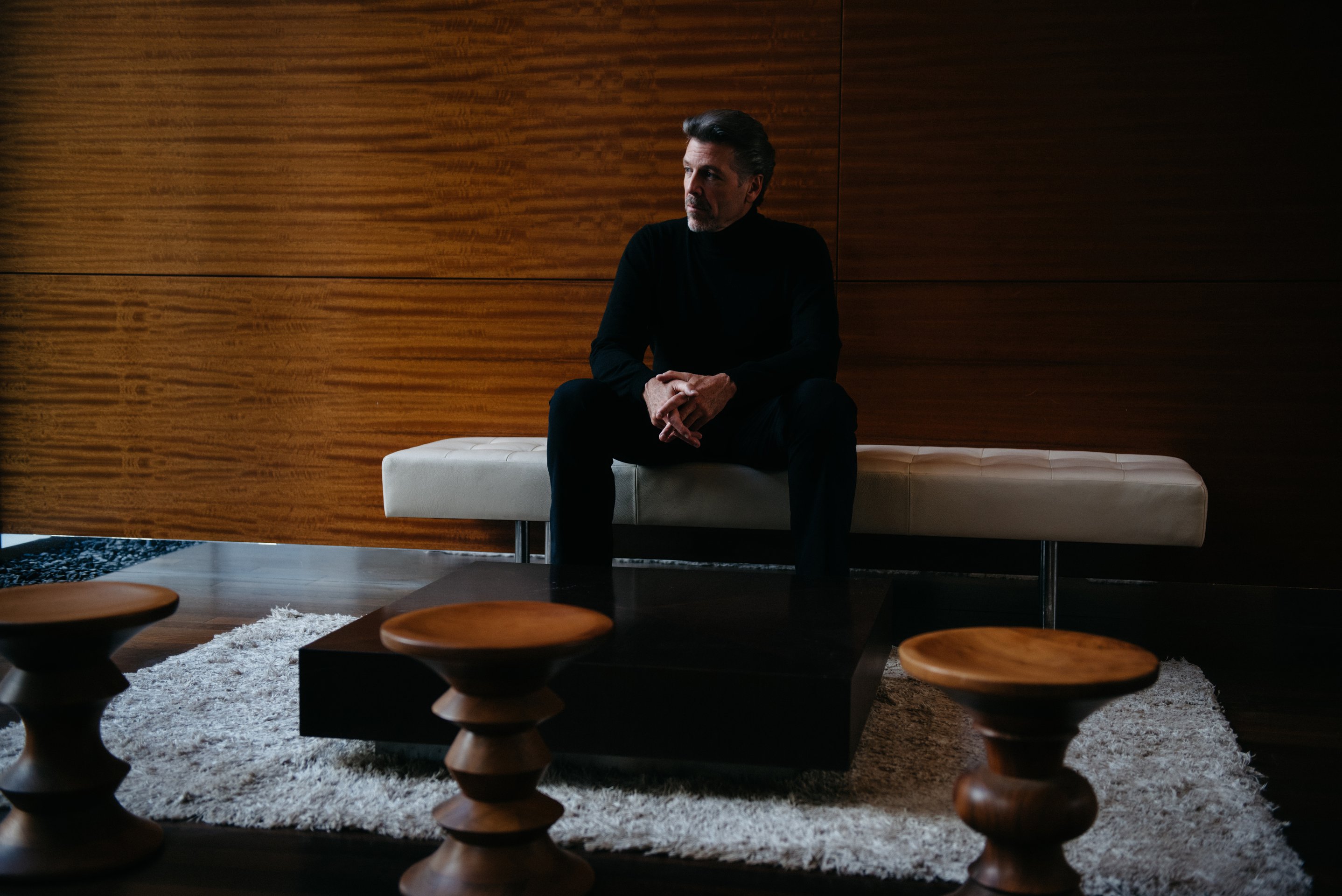
The question »Who or what is America?« brings us to the final work in the Gürzenich’s concert: Antonín Dvořák’s Symphony »From the New World«. People expected Dvořák to write American music for the USA. Yet what is American music? Dvořák produced a mixture, using indigenous melodies, music of the Black population, the settlers and his own Bohemian roots. Was that the solution?
I believe that the Symphony »From the New World« was first and foremost a tribute to his hosts. He never really felt at home in the USA, but he was very well-supported there and also well-informed. It was mainly Henry T. Burleigh who introduced him to Black music – one of Dvořák’s assistants who also composed, sang and conducted. He is, as we say today, the source of Afro-American music. His grandmother was born a slave, so he knew many of the so-called »Negro spirituals«, more correctly referred to as »sorrow songs«. Bourgeois, academic music in the USA at the time was dominated by the European tradition – but Dvořák wanted to know what was really rooted in the American soil?
So he got to know Black music – and also indigenous music, which is a bit problematic, because indigenous music is based on rituals and not on individual melodies. It is functional music – and that is why it cannot simply be transcribed into the European musical language; today many pieces with »Indian melodies« are considered racist. Dvořák, however, wanted Americans to listen to their own culture. This was vehemently rejected by academics in Boston. But one hundred years later, we may safely say that Dvořák was right.
He was right, perhaps – but the question what constitutes American music was answered in many different ways during the following century, with different focuses.
We have now come to a highly complex and very tension-ridden subject. A year ago, I organized the project »Song of America: A Celebration of Black Music« for the Hamburg Music Festival, together with the singer and academic Louise Toppin. I wanted to show that the »classical« music business has acted like a parallel universe for the past 150 years. The truth is that there was so much symphonic and chamber music, and of course songs, which we knew nothing about. And I would like to make sure we finally encounter this music. That’s why we would like to build a true American Music Institute, with a focus on singing and lied, at the University of Michigan’s School of Music, Theatre and Dance.
For example, why is Aaron Copland played all over the world, but not William Grant Still, an Afro-American composer – or Florence Price or William Dawson? Why do we know songs by Ned Rorem, but not the music of his teacher Margaret Bonds, who was a close friend of Langston Hughes? Which brings us to Kurt Weill. Who was the librettist of his opera Street Scene? Langston Hughes! And who was Langston Hughes’ great role model? Walt Whitman! So we have to try again and again to tell America’s true history with all its connections – and to do so, we are missing most of this large group of Afro-American composers, but also other minorities.
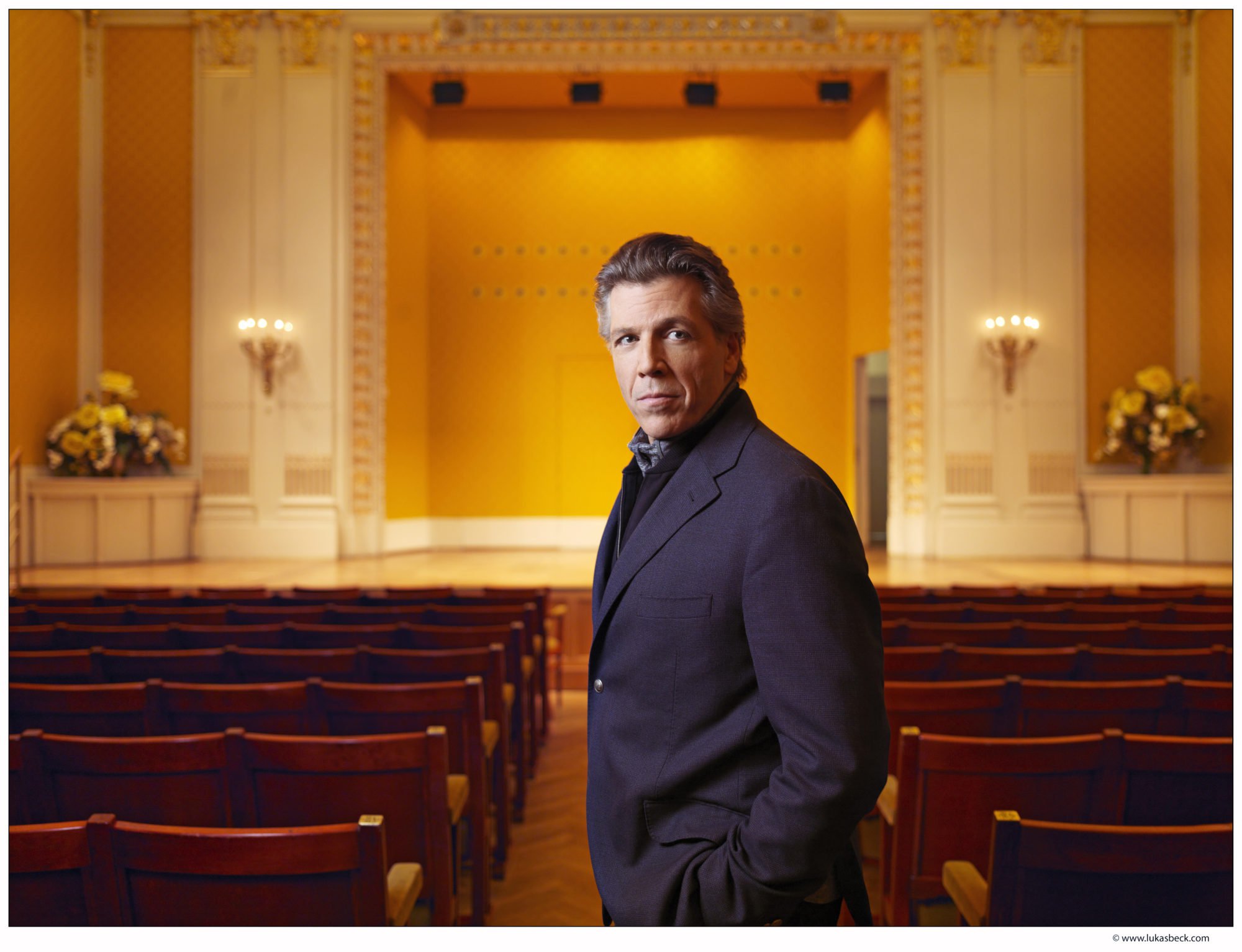
Could these gaps in our knowledge gradually be filled as part of the current debates about identity?
I am not given to simply surfing the next wave – but I believe that the question who is part of American music is currently very appropriate, in all directions. However, I also think it’s wrong to say that only Black people should sing music by Black composers. As a White American, I continuously ask myself how many of these songs I am allowed to sing. And I insist that I have the right to sing them, because it’s not just Afro-American music, but primarily it’s American music. Langston Hughes is also my poet! When he sings about my country and its social conflicts, he means me as a White person just as much as he means Black people. Of course he does so from his own point of view, but that also affects me. The United States of America are a political landscape made up of many different cultures – and when I reflect this diversity in my programmes, that is the »Sound of Humanity,« from which I cannot exclude anyone.
Do you consider culture a means against the much-vaunted rift in American society, then?
I think we should not underestimate how many people in the USA do not accept Trump and »Trumpism«. Of course I cannot agree with Trump and his ideology, that would be completely absurd. And still, with my soul, my heart, my senses and my abilities, I believe in our American motto: »E pluribus unum,« meaning that the diverse multitude becomes a community. That does not mean marginalization, but that diversity gives us strength. Until a short while ago, that is what we believed. Current politics has little to do with the America I grew up in. I find this very painful, and what I can offer against that may be another way of thinking, one that includes our history and all its contexts. As the great civil rights activist Maya Angelou said: »We are more alike, my friends, than we are unalike.«
Did that also apply to Kurt Weill and the emigrants from Hitler’s Germany?
Yes, because Weill was from Germany, but became an American, body and soul. His four Whitman songs were part of a project which was unfortunately interrupted by his death: an Album of American Songs. Emigrants in America were expected to prove that they were really using their talents for America and had turned their backs on fascist Germany. Kurt Weill loved Walt Whitman; he had read many of his poems. And then he set three of those poems relatively quickly, adding a fourth later on.
Thus, Weill was definitely committed to America. On the other hand, he changed the landscape of our musical theatres – mainly through elements of Brecht’s »epic theatre« and didactic plays. You can feel that in works like Love Life, Down in the Valley, but also in a social drama such as Street Scene, based on a libretto by Langston Hughes. Thereby, Weill offered entirely new impulses to musical theatre in the USA – writing one hit after another, incidentally. Weill is a phenomenon: I instantly recognize his music, whether I have heard the piece before or not. That is its unmistakable character – but he mixed it with the sounds surrounding him in America.
by Michael Struck-Schloen | Translation: Alexa Nieschlag
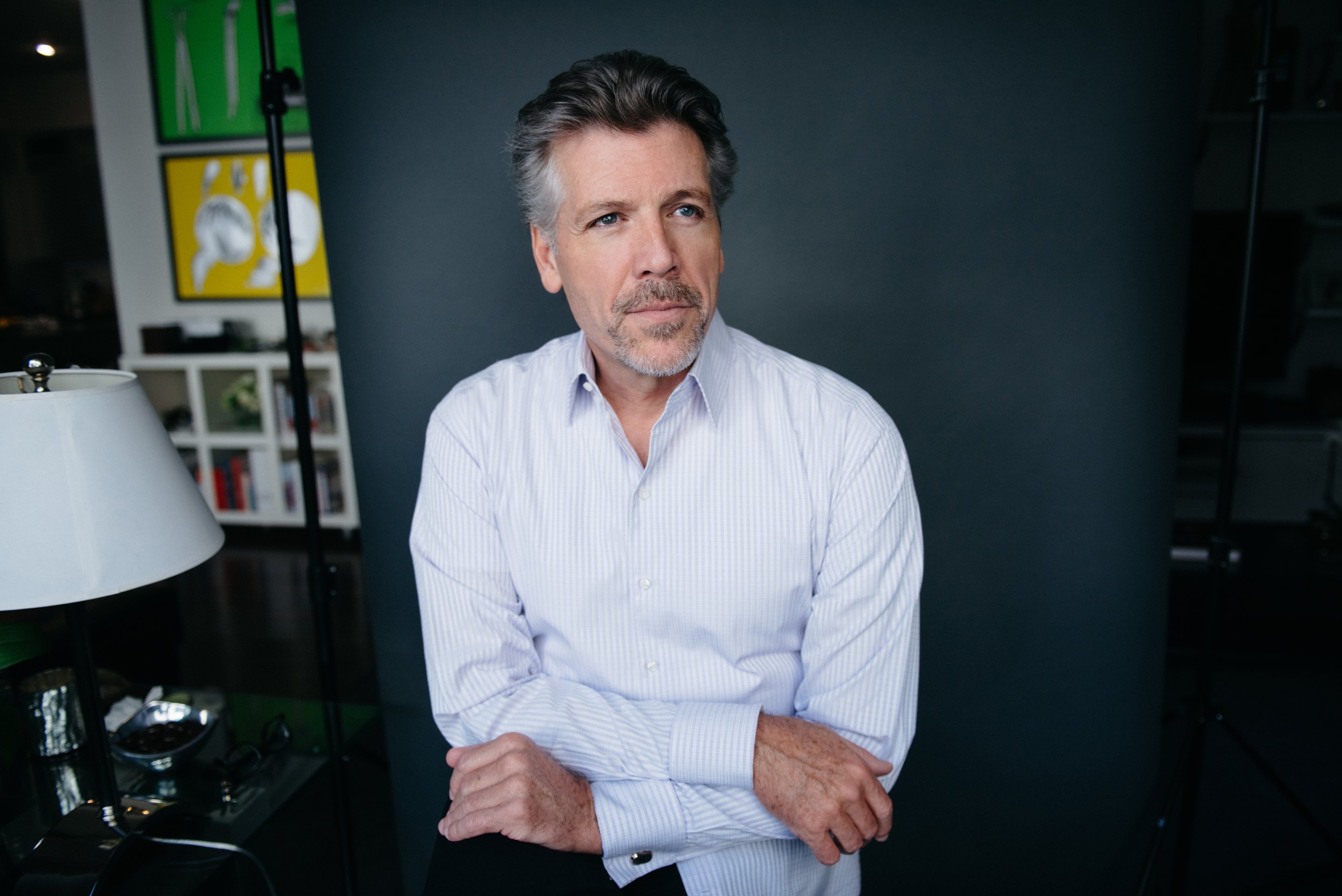
Thomas Hampson
Thomas Hampson, America’s foremost baritone, has received international honors and awards for his captivating artistry and cultural leadership. Lauded as a Metropolitan Opera Guild »Met Mastersinger« and inducted into both the American Academy of Arts and Sciences and Gramophone’s »Hall of Fame,« Hampson is one of the most respected and innovative musicians of our time. With an operatic repertoire of over 80 roles sung in all the major theaters of the world, his discography comprises more than 170 albums, which include multiple nominations and winners of the Grammy Award, Edison Award, and the Grand Prix du Disque. He received the 2009 Distinguished Artistic Leadership Award from the Atlantic Council in Washington, DC, and was appointed the New York Philharmonic’s first-ever Artist-in-Residence. In 2010, he was honored with a Living Legend Award by the Library of Congress, where he has served as Special Advisor to the Study and Performance of Music in America. Furthermore, he has received the famed Concertgebouw Prize.
About »wir helfen«
Gürzenich Orchestra donation projectMany children and young people are on the shady side of life. »wir helfen«, the major initiative of the Kölner Stadt-Anzeiger, supports them in growing up unscathed and finding a good place in society. The Gürzenich Orchestra is committed to this every year with its benefit concert. The Cologne Child Protection Association uses the donations that "wir helfen" passes on to it for, among other things, the prevention project »Bärt & Bärta.«
Statistically, there are children in every primary school class in Cologne who have already had experiences with violence. But what is violence? Is it violence when parents argue and yell at each other? When a teacher exposes the only child with an F in front of the class? When someone makes a derogatory comment on an Instagram post? This is where the successful project of the Cologne Child Protection Association »Bärt & Bärta« comes in, which sensitises children to the topic of violence. It takes into account many facets - from verbal, emotional and physical to sexualised violence; it strengthens children's resilience and shows them ways to get help and support. Bärt and Bärta are two bear figures that can serve as projection figures for the children's feelings and experiences, but also playfully address problems in very different roles. Behind the bear figures are the educational specialists Maria Schlenkrich, Britta Niessen and Miguel Salgado, who not only work intensively with the children, but also approach the topic from all sides in discussions with the school management, the educational specialists and in parents' evenings. Maria Schlenkrich sees a great personal benefit for the children from the visits of Bärt & Bärta: »The primary school children are often surprised at what violence can involve. It is important for us to show how (non-violent) communication and conflict resolution processes can succeed in an appreciative way. Our consultation hours are particularly important for the children. My colleagues, the bears and I remain available for the children after the class visit. In one case, a child even confided in the bears that he had experienced violence in his family. In cooperation with the school and the youth welfare office, the child was offered help. This is a great success for the project of the Child Protection Association, which benefits from the support of »wir helfen«.

